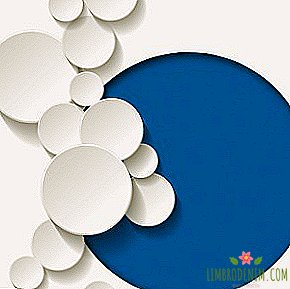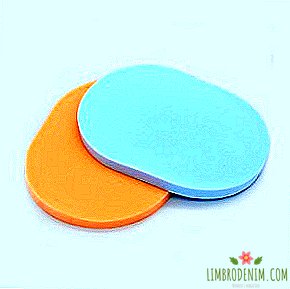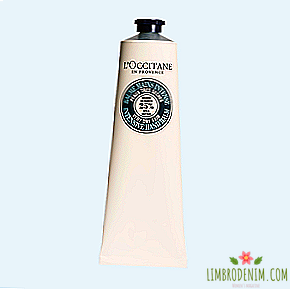Rigid, "hydrogen", mineral: 10 myths about drinking water
It would seem that there is nothing easier and more understandable than drinking water., but she also got a lot of urban legends and errors. Some say that you need to drink no less than eight glasses a day, and coffee and tea are not considered; others believe that hard water is harmful and the more filters the better; still others insist that ordinary water will only cause harm - but enriched with hydrogen, oxygen or “charged” can cure any ailments. We refute the popular myths about drinking water and tell you what you really should pay attention to.

Need to drink at least 8 glasses a day
Probably the most common misconception about drinking is related to the amount of water that “must” be drunk. The figures may vary, but most often they talk about two or two and a half liters per day, emphasizing that this is pure non-carbonated water, and tea, coffee, soups and other liquids are not considered. In reality, there are no official recommendations that would specifically speak about the amount of water to drink. There are documents from the WHO and, for example, the National Academy of Sciences of the USA, where the volume of fluid that is recommended to receive per day is called: it is 3.7 liters for adult men and 2.7 liters for adult women.
The recommendations explain in detail that any drinks (including water, tea and coffee, juices and carbonated drinks) and products (especially a lot of water in fruits and vegetables) make a contribution to this volume, soups are also considered. In addition, the calculation is made for an average person living in a temperate climate, and a specific person may need much more for adequate hydration (especially in heat or high activity) or much less fluid.
There is not much water
It is logical that it is difficult to get about three liters of liquid only from food, and such a volume of juice or coffee can produce too much caffeine or sugar - so you still need to drink water. Would it be better if you drink a lot more than the average recommended amount and drink without thirst? It is unlikely, but it can become worse: as noted in the recommendations of the American National Academy of Sciences, symptoms of water intoxication include hyponatremia (a decrease in sodium concentration in the blood), and this can lead to disruption of the heart, muscle destruction and renal failure.
Toxicologist and scientific journalist Alexei Vodovozov says that hyponatremia occurs even in newborns, when "excessively caring parents start feeding their child with plenty of water for no reason." Water is a thinner, and it reduces the concentration of salts in the body. That is why, if a person sweats heavily (say, he exercises on the street on a hot day), it is better to drink not water, but isotonic drinks in order to replenish lost minerals. This also applies to the state of hangover, when the body is dehydrated and deprived of the necessary salts.
Hard water is harmful
Perhaps, it is on this myth that the market of filters and bottled water in Russia keeps - after all, everyone knows that tap water is tough. It is worth looking at the layer of scale left by it in the kettle, and it seems that our internal organs will get the same sediment, if you drink from the tap. In fact, this is not the case, if only because the human body does not heat the water to the boiling point - and scientists time and again confirm that it is hard water that is useful.
In several large studies, the use of hard drinking water has correlated with a lower incidence of cardiovascular diseases and mortality due to strokes; there is evidence that hard water helps prevent diseases like stomach cancer and keep bones firm. In studies conducted in the USSR, to which WHO refers, it was proved that water with low mineral content contributes to the development of various problems: with bones and teeth, during pregnancy (including premature birth), as well as with blood clotting; and also impaired contractions of the muscles and the heart, as well as growth in children.

Mineral water can be poisoned
A reverent attitude to mineral water in our country has survived since the days when people went to the waters to "heal". Doctors of sanatoriums and dispensaries gave strict recommendations on the amount of such water, which should not be exceeded. The opinion was formed that mineral water is a medicine, and it is enough to drink an extra glass to get an overdose of salts. Russian GOST still describes arsenic, bromine and iodine waters, and various diseases, from gastritis to diabetes, are included in the indications for their use. True, scientific publications on medicinal waters date mainly from the past century and were written on the territory of the former USSR, and there is no support from the international community.
In fact, mineral water, which is sold in stores, contains a small (as a percentage of the daily norm) amount of minerals. It is worth paying attention to calcium, magnesium and sodium: if water is a valuable source for calcium and magnesium intake, then we get enough sodium with salt in foods. And yet, even if you drink a lot of mineral water, much more likely to get water, rather than salt intoxication.
"Hydrogen water" will save us
“Enriched” water is presented by producers, if not as a panacea, then as a means of preventing any diseases - apparently, primarily due to “detox”. Water "with active forms of oxygen" is designed to "enhance immunity, strengthen heart muscle and smooth wrinkles," and even recent presidential candidate advertises "hydrogen water": in her instagram Ksenia Sobchak said that "hydrogen water" is not only the best antioxidant , but it also charges cells with energy, actively moisturizes the skin and helps in detoxifying the body "(now this post is removed).
A set of drinking water jars and soluble tablets that enrich it with hydrogen was even released by the cosmetic brand Perricone MD - a jar of 250 milliliters will cost three dollars. There are home installations for the enrichment of water with hydrogen - their prices start at $ 1,200, and given the lack of definitive evidence of the benefits of such water, the word "enrichment" is more applicable to the budgets of manufacturers. In small studies, interesting results were indeed obtained: for example, when 20 participants with obesity and metabolic syndrome drank 1.5-2 liters of “hydrogen water” daily for eight weeks, they had a 13% decrease in cholesterol levels (comparable to drug effect). However, while “hydrogen water” has not been studied in large randomized studies, loud statements about its benefits are unfounded. Not to mention the fact that the very possibility of dissolving hydrogen in water from a chemical point of view raises questions.
Best spring water
Virtually all the water in one degree or another spring - the same tap water is most often taken from rivers, treated and filtered before it falls into the pipes. The ability to drink untreated water directly from a spring that beats somewhere in the mountains looks seductive, but the water itself will not differ in any special qualities - these are the same H molecules2O and mineral substances dissolved in water. If a trip is given the opportunity to drink from a spring, it is worth treating it as a pleasant adventure - and, of course, it is important that the suitability of drinking water is confirmed.
The love for everything "natural" can be explained not only by traveling for water "to the source", but also by successful sales of rain and melt water and systems for collecting water from the atmosphere. A new harmless trend is the passion for "raw", that is, nothing to treat with water. Paradoxically, so far more than two billion people do not have access to safe tap water (and hundreds of thousands die annually for this reason), in countries where basic sanitation is provided to everyone, people are trying to return to "natural", putting themselves at considerable risk.

Sparkling water is harmful
The myth about the dangers of soda, apparently, is due to the fact that soft drinks are usually translated as "carbonated drinks". Although we are talking about drinks containing dyes, preservatives, caffeine, and sugar, or substitutes for it (like cola and forfeits), the Russian-language formulation makes you think that mineral water with bubbles also belongs to this group.
Today, studies show that carbonated water does not harm the stomach (although it can cause unpleasant sensations like hiccups), teeth or bone tissue. So the choice in favor of water with gas or without can be made on the basis of personal preferences and taste: carbonated drinking water can subjectively better quench thirst and even prevent overeating, creating a feeling of fullness.
You can not drink water from the tap
Everything depends on the region, the country and even a specific address - and in most of the territory of Russia tap water is potable. This means that it is fairly well cleaned of bacteria and harmful substances such as heavy metals. Water utilities in different cities conduct weekly and even daily water quality checks. Problems may arise in homes with old pipes - for the last city water utility is not responsible. If in doubt, a tap water sample can be taken to the laboratory; According to the results of the analysis, besides general conclusions about potableness, they can recommend filters in order to make the composition of water optimal - and this is not so much about additional purification, but about saturation of water with minerals like fluorine.
Even if you don’t like the taste of tap water, it’s safe in our country - which means you can wash it with fruits and vegetables and rinse your mouth after brushing your teeth (for people in many regions of the world, this is still a luxury). We repeat that hard water is not harmful - besides, tap water is usually not distinguished by excessive hardness, it is softened so that the pipes last longer.
Plastic particles from bottles penetrate water
With plastic bottles, everything is also ambiguous: we know that they will decompose in the ocean for almost millions of years, but for some reason we believe that plastic will also enter the body with bottled water. Monomers (small molecules) and the truth can migrate into the water from the walls or lids, but if we are not talking about secretly bottled water of unknown origin, the number of these molecules will not exceed the allowable.
In Spain, a study was conducted of more than 130 types of bottled water - only 5.6% of more than 6,000 samples and plastic molecules were indeed found. However, it turned out that to exceed the safe limit you need to drink 231 liters of water per day. With all the shortcomings of plastic for the environment, we can be calm for one fact: the quality of water does not degrade.
It is harmful to drink while eating
Opponents of drinking while eating use the “dilution of gastric juice” described by the creator of the theory of separate nutrition Shelton, then the risk of “extinguish the fire of digestion” according to Ayurveda (in this case, cold drinks). Both arguments are untenable: even if the acidity in the stomach decreases slightly, the gastric juice will just continue to stand out to the required amount. As for the temperature, even the coldest water in the stomach warms up instantly.
Contrasts of water temperature and food should be paid first of all to brackets holders: metal elements really can come off the teeth of ice cream with hot coffee. Neither cold water nor hot coffee will affect the digestion. It is worth remembering that the body of each person is unique and when choosing the amount of drinks, their temperature and composition, you need to focus not only on general recommendations, but also on your own feelings and tastes. In the end, some manage to live for more than a hundred years, drinking four bottles of wine a day instead of water.
Photo: Baillou - stock.adobe.com





